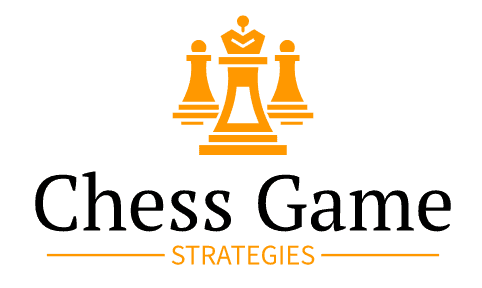
Chess Glossary : Section O
Occupation
1. Referring to a Rook or Queen, when either has control of a full Rank or File – e.g. The Rook on a8 is Occupying the a-File and the 8th Rank.
2. A difficult question to answer for all members of the Chess Glossary Team. As a result they neither have a Passport or legal Drivers License between them.
Odds Game
Refers to a type of game played that gives some sort of ‘handicap’ to a stronger player, in order to give a significantly weaker player a chance. For instance, a game played at or with Queen Odds would mean the stronger player has to do battle without their Queen, while the weaker opponent gets their full army for the game. Other Odds games could be played with a time imbalance; an imbalance in the number of moves allowed; a combination of different handicaps; and so on.
Offhand Game
A term used to describe a casual game, often without a chess clock, played for a bit of fun.
Official Chess Rules
The Chess Glossary Team have produced a corker of an excuse, saying something about “lots to mention, too little space” and have triumphed in not writing anything for this entry.
Offside Pawn Majority
An Offside Pawn Majority is a Pawn Majority on the opposite side of the board (to where the adverse King is positioned).
Olympiad
Also referred to as a Chess Olympiad, it’s a team event and FIDE-organized tournament, played by teams from all across the world, over a period of two years.
Online Chess Games
So idle there was a bone in it, the Chess Glossary Team simply said to replace Online with Internet, Jump to I in the glossary and put two and two together.
Online Computer Chess Games
Yes, this page is going to be similar to the previous entry. There is method to the Chess Glossary Team’s madness … It’s just a shame that madness seems to be marshaling their method.
O-O
The way Kingside Castling is recorded in PGN format (for use with computer chess software). When recording Kingside Castling in Algerbraic Chess Notation, two zeros are actually used: 0-0.
O-O-O
The way Queenside Castling is recorded in PGN format (for use with computer chess software). When recording Queenside Castling in Algerbraic Chess Notation, three zeros are actually used: 0-0-0.
Open
1. Quick way of referring to an “Open File“.
2. A Chess Tournament category that anyone can enter – in other words, “it’s Open to everyone“, as opposed to an Invitation-only Tournament, or as the Chess Glossary Team point out, for obvious reasons, the “Women’s World Chess Tournament“.
Open File
If, on any File – a to h – neither player has any Pawns, meaning the long-distance pieces can attack the enemy’s back row, it is known as an “Open File“.
Open Game
1. Where there is lots of space – with multiple Open Ranks/Files/Diagonals – and the board has few Pawns in the Center of the Chess Board, this is known as an “Open Game“.
2. The Chess Glossary Team’s favorite put-forth when about to tuck into a delicious-looking roasted Goose.
Open Position
Another way of referring to an Open Game – the Center is largely clear, with few Pawns to block the long paths needed by the Bishops, Rooks and Queens.
Opening
A series of moves made at the start of a game of Chess. Typically, this will include Developing pieces as quickly as possible; aiming for control of the Center of the Chess Board; and Castling the King to relative safety, which has the added benefit of bringing one of the Rooks inwards, where it can be far more effective.
Openings
Specific opening sequences that lead to good piece Development. The names of these Chess Openings honor either the player who invents them – such as The Ruy Lopez; the country where the Openings were popular – such as The English Opening; or after a special feature of the sequence – such as in The Four Knights’ Game.
Opposite-colored Bishops
When players are down to a single Bishop each, with one on the light-colored squares and the other on the dark squares – thus, they’re on opposite colors.
Opposition
1. The Chess Glossary Team vs. Management. The latter wants work done, the former is in total Opposition to the idea.
2. Not to be confused with the two opponents (the players). Opposition actually refers to a situation where two Kings are sitting on the same Rank, File, or Diagonal, with just a single empty square between them. The King that has to move is often disadvantaged by doing so.
Outpost Station
A square in or close to the enemy’s base-camp. The Outpost is protected by a Pawn, for the benefit of getting another Piece – usually a Knight – onto the key square, in the build-up to launching an attack against the enemy’s position.
Outside Passed Pawn
Any Passed Pawn that’s on the outer two Files – the ‘a’ & ‘b’ Files, on the Queenside’; or the ‘g’ & ‘h’ Files, on the Kingside of the Board.
Overextension
When a player rushes to get his Pawns out into the thick of the action, without developing a solid defensive structure and, at the same time, leaving channels open to attack from the enemy, he is said to have Overextended.
Overloading
The concept of para-phrasing was suddenly lost on the Chess Glossary Team and the emergency reference kit that is Wikipedia suddenly came to the rescue with this: “Overloading is a chess tactic in which a defensive piece is given an additional assignment which it cannot complete without abandoning its original assignment.”
Overprotection
Guarding a specific square or Pawn/Piece, with more Pawns and/or Pieces than is currently necessary, is seen as Over-protecting it. It’s not necessarily a bad thing to do, as it can serve to dissuade your opponent from attacking that point. Overprotection can be used as a smoke-screen, to get your opponent to alter their plan(s) for your particular benefit.
Over-The-Board (OTB)
A game played in-person, face-to-face, with a proper Chessboard and pieces, is said to be played Over-The-Board.
Overworked
1. Yes, we are. (spat The Chess Glossary Team).
2. Another term “Overloading”.

